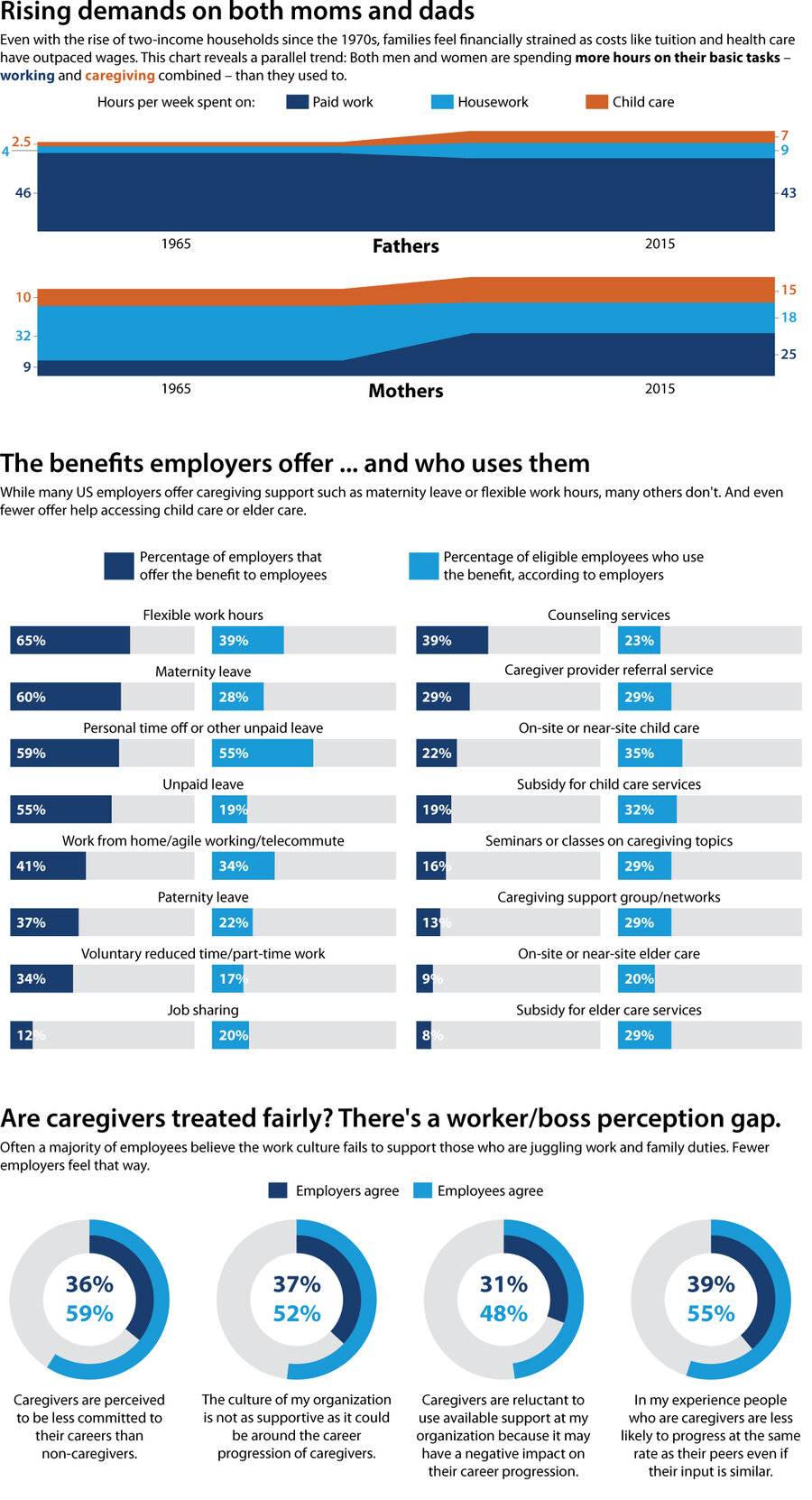Caregiving crisis? Employers slow to catch up to ‘sandwich generation.’
Loading...
“American companies are facing a caregiving crisis – they just refuse to acknowledge it.” Those are the blunt opening words of a recently released analysis by two Harvard Business School researchers. After polling a diverse set of US workplaces – 301 employers and 1,500 employees – Joseph Fuller and Manjari Raman found a mismatch between worker needs and employer awareness. Workers see rising demands to also be caregivers, not least because so many have parents to care for, not just kids. By the 2030s, for the first time, the number of Americans age 65 and older is expected to be more than the number of those under 18.5. All this helps explain why things like child care, elder care, and paid family leave are potent issues for state policymakers and presidential candidates. But it also makes bottom-line sense as part of employers’ agenda. The Harvard researchers find that 80 percent of workers with caregiving responsibilities say those duties affect their work performance. And half of workers age 26 to 35 have voluntarily left a job because of caregiving tasks. Building the culture of a “caring company” could become a competitive advantage.
"The Caring Company," a report by Joseph B. Fuller and Manjari Raman of Harvard Business School.
Why We Wrote This
Balancing work and family is a familiar challenge. We were intrigued by a new workplace survey that emphasizes the role that employers, not just government, can play in finding solutions.







